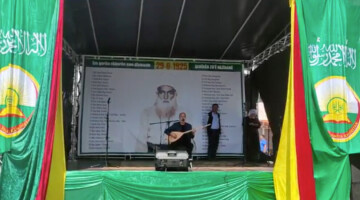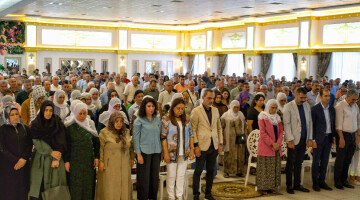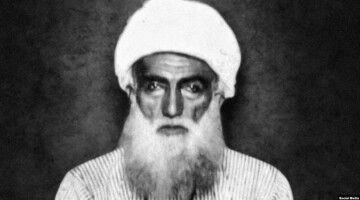On 6 May 1972 Deniz Gezmiş, Yusuf Aslan and Hüseyin Inan were executed in Ulucanlar prison in Ankara. The young revolutionaries who were among the leaders of the 68 movement have been commemorated today in Istanbul and Ankara.
The first commemoration promoted by youth organisations took place in Dolmabahçe in Istanbul, accompanied by a large police presence and under the conditions of the Coronavirus pandemic. Among others, HDP deputies Züleyha Gülüm, Musa Piroğlu and Murat Çepni took part in the event.
A statement read out by the organisers said: "The capitalist and imperialist system continues its policy of exploitation and plunder with undiminished speed. The Turkish government is now only concerned with keeping the power and is looking for the way out of the economic and political crisis in the wars in Syria and Kurdistan. We call upon the youth to continue the socialist struggle on the path of Deniz, Hüseyin and Yusuf.
Another event took place in the afternoon in front of the Süreyya Opera in Istanbul's Kadiköy district.
Police attack in Ankara
A commemoration ceremony took place at Yenişehir Karşıyaka Cemetery in Ankara with the participation of representatives of political parties including HDP and Labor Party. Police attacked the crowd on the grounds of the banners displayed by the young activists attending the event. Two people were arrested during the crackdown.
Deniz, Yusuf and Hüseyin: pioneers of the revolutionary youth movement
Deniz Gezmiş, Yusuf Aslan and Hüseyin İnan were among the most important representatives of the student and youth movement in Turkey. They were active in the Turkish Workers' Party (TIP) from the mid-1960s onwards and had distinguished themselves through particularly militant actions such as their participation in the protests against the 6th US fleet, which was anchored in Istanbul at the time, against the US forces stationed in Turkey. At that time, the youth in many countries protested against the established institutions and forms of rule. The history of Gezmiş and his companions is therefore inseparably interwoven with the political circumstances of the time, which led him and others within the split Turkish left to choose the path of militant resistance.













